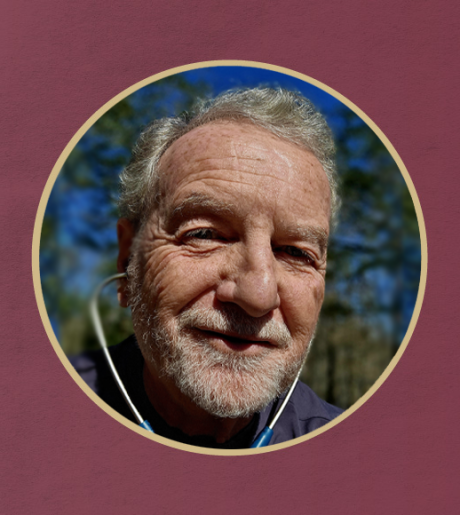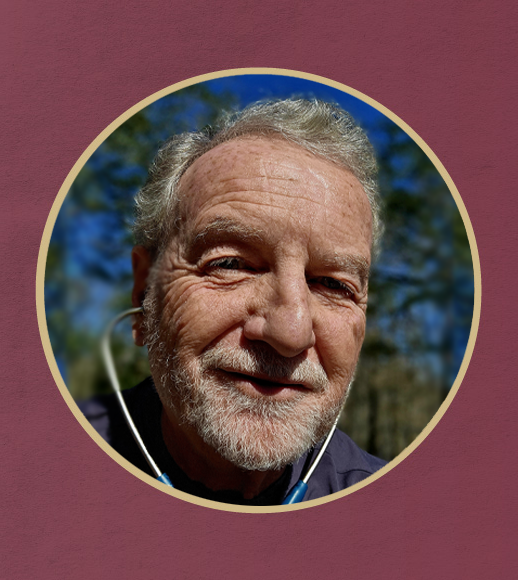Rust Provides Reliable Information on Measles Outbreaks


George Rust, MD, MPH, FAAFP, FACPM
Links to media interviews discussing measles:
- WebMD -- https://www.webmd.com/children/vaccines/news/20250312/the-other-vaccine-preventable-diseases-worrying-doctors-now
- Spectrum News -- https://pilot.latakoo.com/asset/20152858?share=rsmyehvjrztant3akm5rueee3gtsw7iy
- WCTV.tv (Tallahassee) -- https://www.wctv.tv/2025/03/06/fsu-professor-emphasizes-importance-vaccination-fl-deals-with-first-measles-case-2025/
- WPBF-TV Palm Beach area – they used a lot of my background info, but very little direct quote/video -- https://www.wpbf.com/article/measles-case-confirmed-in-south-florida/64052965
- Tampa Bay Times -- https://www.tampabay.com/news/health/2025/03/04/measles-confirmed-miami-teenager-first-florida-this-year/
- CNN Health (on-line) -- https://www.cnn.com/2024/02/23/health/florida-measles-outbreak
Measles FAQs for media 2025:
FAQs:
Are measles outbreaks something new?
- No, but they are becoming more common again after years when locally acquired measles was quite rare in the U.S. Measles was declared “eliminated” in the U.S. in 2000, because there was no endemic or local transmission being propagated.
- U.S. cases typically occurred when an unvaccinated American returned from an overseas trip to a country where measles is endemic. Now we’re seeing more outbreaks in communities across America where there are pockets of children or adults who are unimmunized.
- Worldwide, many countries across the globe have endemic measles, representing up to 10 million cases per year.
- Measles is far from a routine illness. Kids get really sick. They get high fevers. They cough. They feel awful for days. Many are hospitalized, and a few of them may die.
- Before the vaccine, it’s true that most people were infected as children. If you were born before 1957, you probably had it and now have lifelong immunity. Before the vaccine, there were roughly half a million cases of measles annually and 4-500 measles deaths each year in the U.S.
- Measles rates plummeted after introduction of the vaccine, especially with school mandates to assure near-universal immunization.
Isn’t measles just a routine childhood illness that everyone used to get?
- Measles is far from a routine illness. Kids get really sick. They get high fevers.They cough. They feel awful for days. Many are hospitalized, and a few of them may die.
- Before the vaccine, it’s true that most people were infected as children. If you were born before 1957, you probably had it and now have lifelong immunity. Before the vaccine, there were roughly half a million cases of measles annually and 4-500 measles deaths each year in the U.S.
- Measles rates plummeted after introduction of the vaccine, especially with school mandates to assure near-universal immunization.
But would it be okay to let your child get measles so they would be immune for life?
- No! In addition to making your child feel really sick and awful (high fever, cough, and rash) for days, a substantial proportion (roughly one in five children under age 5 with measles will be hospitalized; over 40% of children under age 5 will be hospitalized, often with pneumonia).
- There are also more deadly complications. Perhaps one in a thousand children with measles will develop encephalitis with the potential for long-term brain damage; one in three of those children may die. Children’s author Roald Dahl’s daughter Olivia died of measles complications. He dedicated two books to her memory and published a letter begging his fellow Brits to get their children vaccinated.
- A far better alternative is to vaccinate your child; side-effects are minimal, complications are rare, and 97% lifelong immunity will be achieved.
What should I do if I think I’ve been exposed to measles or if my child has symptoms?
- If there’s any chance that it’s measles, do not go to an urgent-care center or emergency department, or even to your physician’s office, without calling them first. Dozens of people could be infected by one patient coughing in the waiting area.
- Triage staff can assess by phone and then make arrangements to meet you at your car. If needed, they can take you to a negative pressure isolation room, where there will be no opportunity to spread the infection to others.
I can’t remember if I’ve gotten the vaccine or not. What should I do? If I got it as a child, do I need a booster?
- If you were born before 1957, you were most likely exposed as a child and have lifelong immunity.
- If you got the vaccine between 1963 and 1968, the vaccine you received may not have been the live vaccine and may not have conferred lifelong immunity. If you only got one dose as a child, you might need a 2nd dose booster to achieve optimal immunity. Talk with your primary care clinician about getting a booster.
- Special care to make sure that you have had at least two MMR vaccines at least 28 days apart include anyone engaging in international travel, but also healthcare workers and workers in post-secondary school institutions.
- In the setting of an outbreak or planned international travel, infants younger than 15 months but older than six months may be vaccinated. Talk with your primary care clinician.
- Pregnant (or possibly pregnant) women and immunocompromised persons should not receive live virus vaccines.
Why are more outbreaks occurring now?
- Local transmission of measles had been largely eliminated in the U.S., but we see sporadic outbreaks especially when immunization levels drop even a little bit. If a susceptible person travels overseas and comes in contact with measles, they can bring it back into our communities and transmit it to others while they are still asymptomatic.
- Measles is highly contagious – 90% of unvaccinated people who are exposed are likely to catch it. If you’re in the same room within 2 hours of when a measles patient was coughing in that room, you are likely exposed.
- Because of the high rate of infectivity, measles outbreaks can spread exponentially in segments of the population that are unimmunized or not immune.
- Herd immunity protects us all. That’s why getting the vaccine is not just about my benefit and my risk but is a “we-all” practice that protects my neighbors.
- The threshold for herd immunity is 95%. See this simulation from the University of Pittsburgh to see what would happen in any community if their immunization rate drops to 80% -- https://fred.publichealth.pitt.edu/measles
So declining vaccination rates lead to more outbreaks? Why have those rates declined?
- Thankfully, most people in the U.S. are immunized or immune (older people were probably infected as children, and school mandates were very effective).
- In the current environment, vaccine mandates are sometimes framed as a personal freedom issue. Some jurisdictions are increasingly allowing parents to opt out of school-required vaccines for medical, religious, or even just personal reasons. Some politicians are inflaming a polarization around individual rights.
- In my view, personal autonomy must be balanced by community responsibility. We all benefit from the protection afforded by a “we-all” approach to vaccination. School mandates are a must.
What happens if there is an outbreak?
- Public health agencies and professionals have well-established algorithms for intervening when a measles case occurs. This involves vaccinating susceptible individuals, isolating cases, and excluding those who are unvaccinated and exposed to a case (i.e., susceptible and exposed) from the classroom.
- Once a case is reported, “the critical thing is to prevent that second wave. That requires contact tracing, household isolation of the case and quarantining of the contacts.
- Quarantining susceptible exposed individuals is crucial, because if they get measles, they can be contagious for up to four days before they show any symptoms.
- Vaccination of every susceptible individual in the area can also help snuff out an outbreak (Chicago 2024 example).
- Professionals with public health credentials and experience must lead these efforts. Political appointees must listen to their experts.
What can be done to prevent new outbreaks?
- The good news is that the vaccine is very effective. Vaccinated people are 97% protected (93% after the first dose). And vaccines protect the community as well. If the immunization rate in a school or a community is at or above 95%, then herd immunity (community immunity) will work. But if immunization rates drop below the herd immunity threshold, outbreaks and spread can occur.
- That means that we need to create a culture of community responsibility. We need to hold one another accountable for making sure that we protect not just our own children, but each other’s children.
Have you noticed an increase in measles cases in your practice or community?
- Not locally here in North Florida. We did have an outbreak in Broward County (Fort Lauderdale area) last year. There have also been outbreaks in other parts of the country. As we’ve seen in Texas, these can easily spread beyond county or even state borders.
- But many of our communities have pockets of vulnerability, such as schools with a high rate of waivers from required immunizations.
Any final thoughts?
- We have been so successful in preventing measles in this country that most U.S. medical students will finish medical school without ever having seen a case. Many U.S. doctors have never seen a case. As a result, many people in the community and even in our profession forget how sick children (or adults) get when they have measles.
- Measles is serious. Kids get really sick, with cough, high fever, and rash. Historically, one in five are hospitalized. One in a thousand have brain involvement (encephalitis), and as many as one in 3,000 cases die. Pregnant women can suffer miscarriage or premature birth.
- But the good news is that the measles vaccine is one of the most effective that we have, conferring 93% immunity with the first dose and 97% after the 2nd dose. Immunity is lifelong.
- The challenge is that measles is so contagious that it spreads exponentially through underimmunized populations. We need to maintain an immunization rate above 95% to sustain community (herd) immunity. That’s why loosening up school mandates for vaccines is so dangerous. It can’t just be an individual (me-all) decision; it has to be a we-all decision that honors our community responsibility.

